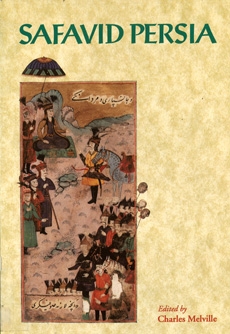
Safavid Persia, Volume 4
Charles Melville
LB. Tauris & Co Ltd
Pembroke Persian Papers
Volume 4 Safavid Persia. The History and Politics of an Islamic Society
Edited by Charles Melville
The Safavids ruled Persia for nearly two and a half centuries, longer than any other dynasty since the pre-Islamic period. The family was descended from the sufi Shaikh Safi al-Din of Ardabil (d. 1335), and thus enjoyed spiritual authority over its disciples among the Turkish Qizilbash tribes of eastern Anatolia and north western Persia, who brought the young Isma'il to power in 1501. Shah Isma'il proclaimed Twelver (Imami) Shi'ism as the official faith of Persia, and a genealogy was forged to trace the dynasty back to the seventh Imam, Musa al-Kazim. There followed a slow process of adjustment, during which the orthodox Shi'i 'ulama increased their authority both at the expense of the Safavid Shahs and of the Qizilbash sufis. Despite the interest of the Safavid period, which in many ways marked the emergence of modern Iran, it has not received the scholarly attention it deserves, and many questions remain to be explored.
This book on Safavid Persia is divided into two sections, the first of which includes studies on the historiography and the religious politics of the period. Among the contributions to the second section are chapters on the silk industry, which brought European merchants into the country and at the same time exposed the Persian economy to the vagaries of world trade; on the capital city of Isfahan, beautified by successive Shahs; and on the Safavids' reluctance to adopt firearms and artillery, which was one of the factors in the collapse of the dynasty when the Afghans invaded Persia in 1722.
Charles Melville is a Fellow of Pembroke College and Lecturer in Islamic and Middle Eastern Studies at the University of Cambridge.
Cover illustration: Shaikh Abdal Pirzada presents the horse of Din Muhammad Khan the Uzbek to Shah Abbas, from the Silsilat al-nasab-i fafaviyya of Shaikh Husain b. Shaikh Abdal Zahidi, Browne Oriental ms. H. 12 (11), fol. 80 recto, reproduced by kind permission of the Syndics of Cambridge University Library. | 